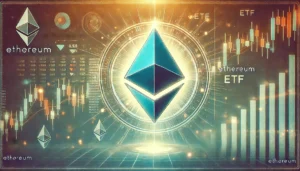Is Ethereum 2.0 going to the open knife of the crypto exchanges?
3 min read
The merge is the biggest update in Ethereum’s young history. The shift from Proof of Work to Proof of Stake will have a huge impact on the second largest blockchain network in the world – and the entire crypto economy.
But to this day, some misunderstandings circulate that even the wonderful FAQ section of the blockchain does not answer. Also, people connected to the merge are ignoring important facts. Or misunderstand. We can’t afford that. So I decided to speak openly about these issues.
There are no 400,000 validators
I keep hearing that there are said to be 400,000 validators in the new network. To become one, you need at least 32 ETH (around $50,000). The number of validators is just wrong.
I can imagine thousands of people launching network nodes. But I can’t imagine all of them guaranteeing close to 100 percent uptime, which is what the network needs. One category of penalties is for individual validator inactivity.
Soon many of them will burn their fingers, lose their money and eventually turn away, completely demotivated. Or financially unable to start all over again.
That means Ethereum’s Proof of Stake incarnation won’t have nearly as many validators as some are predicting. Also, I don’t expect the number of nodes to be significant enough to satisfy those with a serious penchant for decentralization. Their efforts risk being overshadowed by a very menacing presence: the major core crypto exchanges as validators.
Crypto exchanges as validators are a flaw
The crypto exchanges Binance, Coinbase and Kraken already hold over 32 percent of the ETH used for staking. As Ethereum transitions to Proof of Stake in the course of the merge, the risk they pose will only increase.
The fact that stock exchanges can participate in validation really annoys me personally. It’s a serious design flaw that I don’t even know how to fix. Maybe some project will find a solution one day, but at the moment it seems impossible.
The validators in Proof of Stake behave in a trustworthy manner because acting against the interests of the network will cost them a lot of money, and they are aware of this. This is an incentive for them to work conscientiously and maintain 100 percent uptime, for example.
But crypto exchanges don’t use their own funds to stake. They simply push their users’ money there and make profits that sometimes they don’t even disclose. If they act against the interests of the network, they lose nothing – unlike their clients, whose tokens can lose value due to an exchange’s unfriendly behavior.
These exchanges are big enough to damage an entire ecosystem and get away with it. Knowing the influence and size of Ethereum, this could become a big issue when the merge happens.
Merge attracts power-hungry people
The key takeaway from these facts is hardly surprising: we are all human, and we drag our human imperfections into even the most perfect technologies. As long as some people seek power for the sake of power and others chase after quick bucks without concern for the importance of technological advances, there will always be politics, including in the crypto economy.
And I fear that the merge will bring even more power-hungry people into the space who can influence the ecosystem. Of course, that’s no reason to fear the merge itself. Its importance for the technology and development of cryptocurrencies can hardly be underestimated.
But we all must be ready to face this new reality when it finally arrives.
Dollar index fell by almost 3%. What does this mean for cryptocurrencies?






